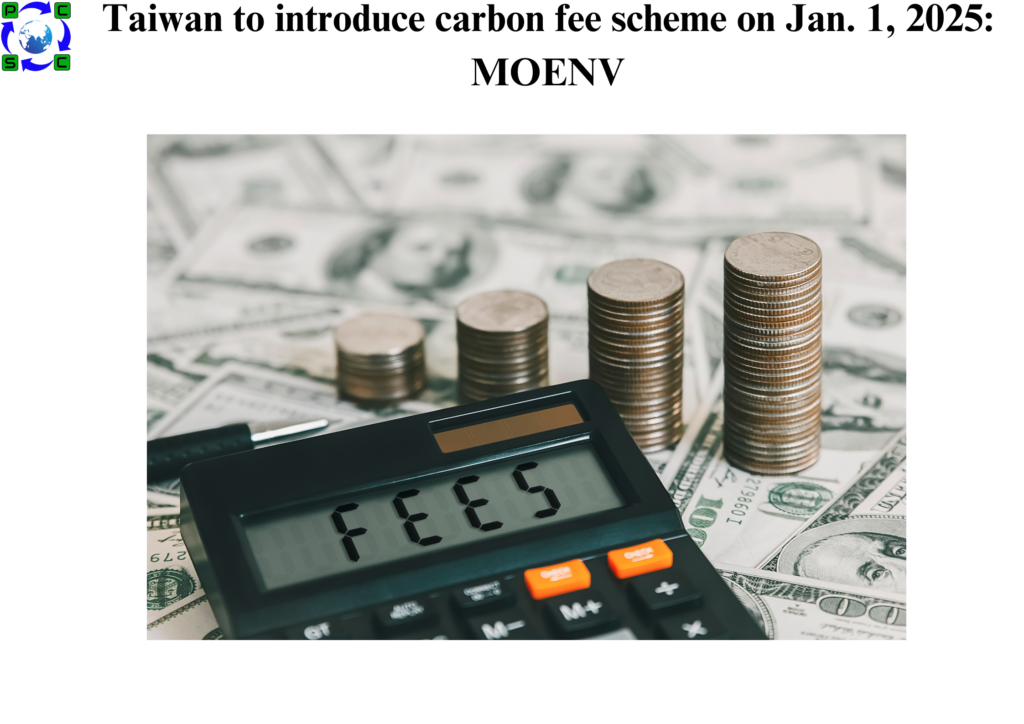
Taiwan will launch its long-delayed carbon fee program on January 1, 2025, targeting the country’s largest carbon emitters with a fee of up to NT$300 (US$9.31) per metric ton of carbon emissions, according to the Ministry of Environment (MOENV).
The rate, which was recommended by a government review committee earlier this month, will initially apply to companies emitting more than 25,000 metric tons of carbon annually, the ministry stated.
In addition to the base rate, the committee proposed preferential rates of NT$50/tCO2 and NT$100/tCO2 for companies that meet specific emissions reduction targets, according to the MOENV.
The ministry also outlined that 2025 will serve as a trial year in which large emitters will report their 2024 emissions without incurring carbon fees. The fees will be enforced starting in 2026 based on emissions data from 2025.
Approximately 500 companies are expected to exceed the 25,000-metric ton threshold and be subject to the carbon fee, the ministry noted.
A review in July by the committee showed that a NT$300 per metric ton carbon fee would result in a 0.12 percentage point reduction in Taiwan’s GDP, while a NT$500 fee would cause a 0.2 percentage point decline. Every 0.1 percentage point decrease in GDP equates to about NT$23.5 billion, based on Taiwan’s 2023 GDP figures.
The government initially planned to implement the carbon fee in 2023, but delays in the Environmental Protection Administration’s (EPA) preparations pushed the timeline to 2024. After the EPA’s reorganization into the Ministry of Environment in August 2023, the start date was further delayed to 2025.
Environmental groups have criticized these delays, and many believe the proposed carbon fee and preferential rates are too low to significantly influence the behavior of major emitters. Greenpeace Taiwan, for example, warned that companies may view these fees as manageable operational costs or pass them onto consumers, rather than investing in emissions reductions. The organization also expressed concern that Taiwan’s “passive” approach to carbon fee regulations could be perceived globally as insufficient commitment to carbon reduction.








 Authorised IMDS & CDX Training & Consulting partner for
Authorised IMDS & CDX Training & Consulting partner for






